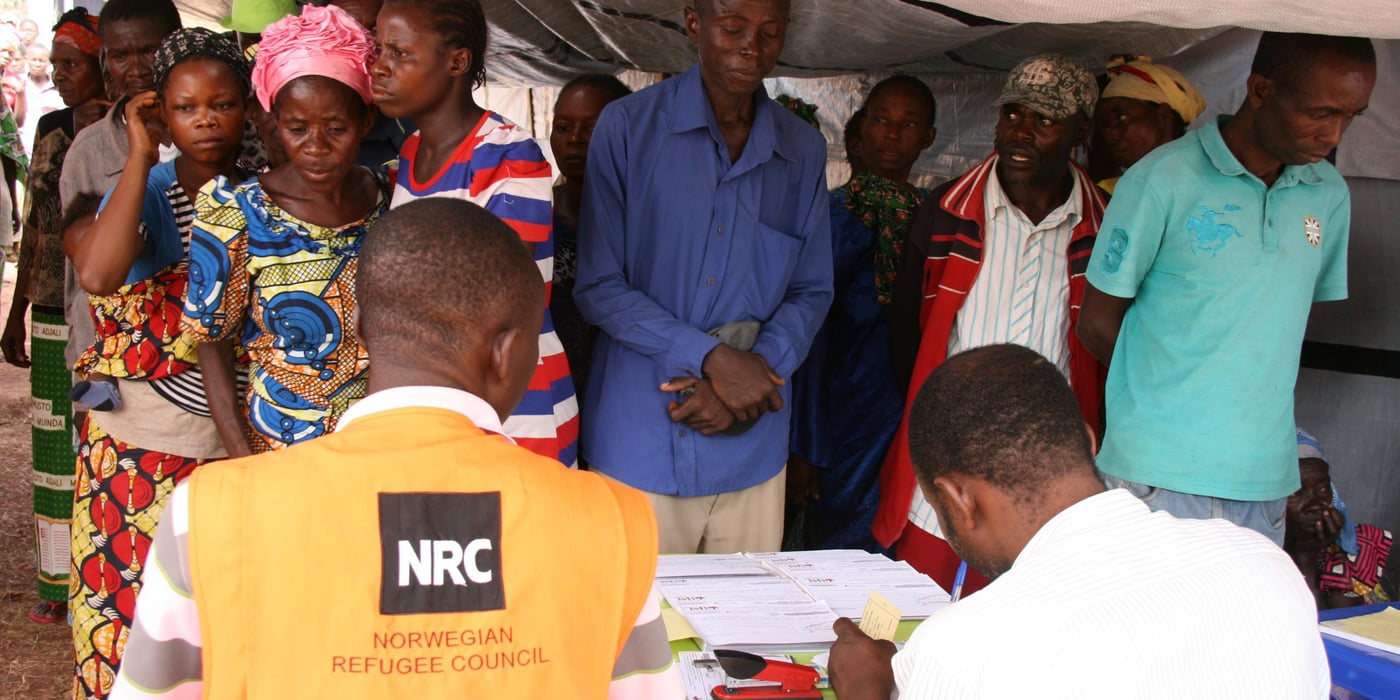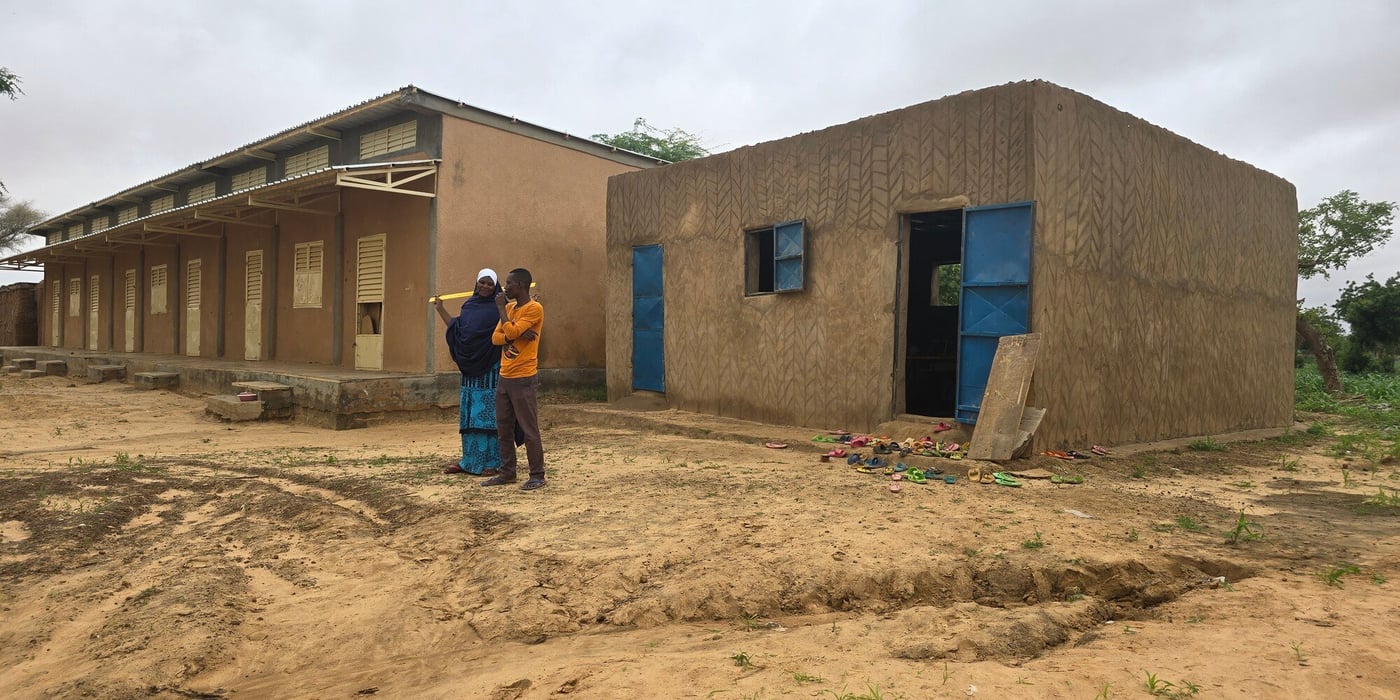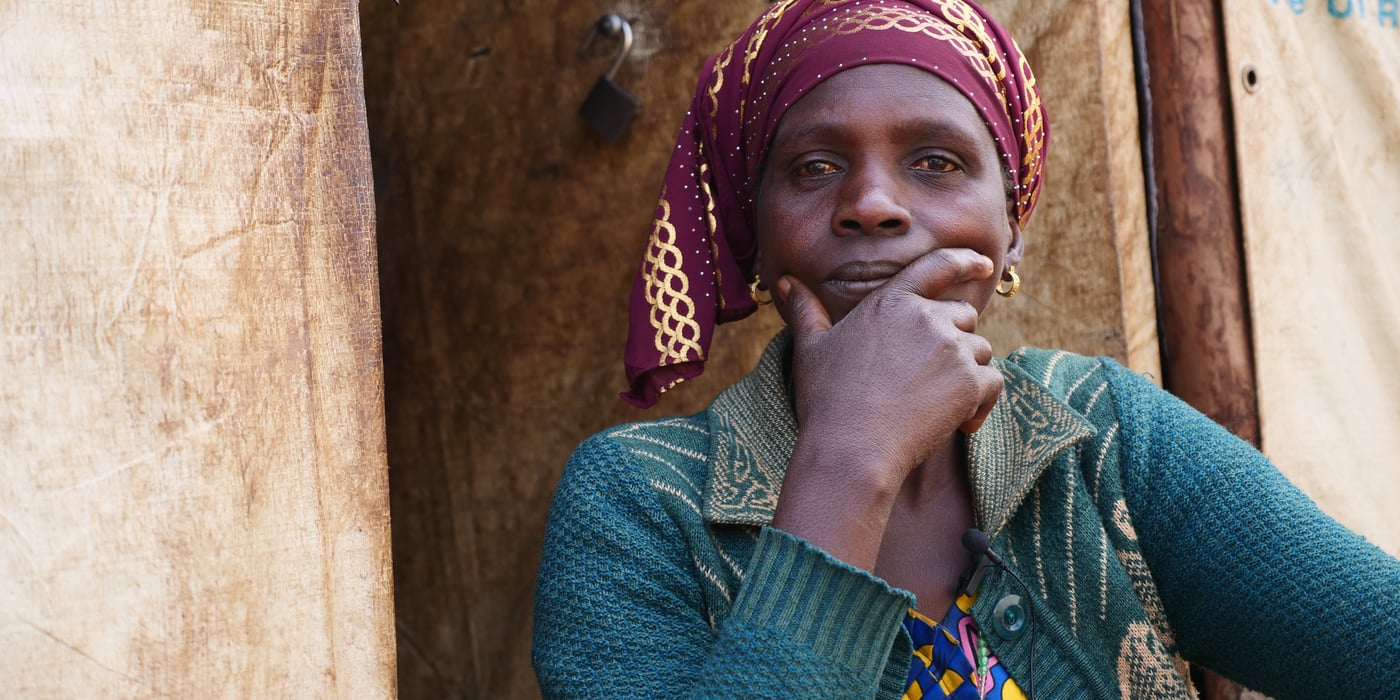
Thousands of people have fled violent armed and inter-communal conflict in the villages surrounding the town of Kalemie in DR Congo’s south-eastern Tanganyika province. Many of these families live in displacement settlements without enough food to eat, and have not received the lifesaving assistance they need.
With funding from UNICEF, the Norwegian Refugee Council (NRC) has provided cash assistance to more than 8,600 displaced families , about 51,600 people in total. Our goal is to give displaced families the ability to determine and purchase what they need the most.
We partnered with Trust Merchant Bank S.A (TMB), a commercial bank working in DR Congo that specialises in money transfer, to provide unconditional cash for families in need.
Quick and easy assistance
Bernadette Ebambi, a mother of seven children, was forced to flee and abandon her plot of land and small collection of livestock when armed groups attacked her village of Kabulo, located about 50 km from Kalemie. She’s been living in Kalonda displacement settlement in Kalémie since February 2017, and has used the resources of our team there.
"Today, I received USD 55. Thanks to this cash, I was able to buy food and clothes for my kids.”
Like many displaced people in Kalemie, this is the first time Ebami has received assistance.
"I really appreciated this way of receiving assistance. Not only does it help us, but it also makes it easier for us to choose what we want to buy according to our needs."
Read more about how we provide smart aid through cash-based assistance here.

Benefits of unconditional cash in emergency
This type of economic intervention is part of the Rapid Response to Population Movement (RRMP), an emergency project funded by UNICEF.
Thanks to the partnership, personal data on the amount of money intended for each person in need, based on the size of their household, is stored and well protected. After two rounds of verification, each person receives a certified cheque they can use to withdraw money from a TMB automated bank machine. To avoid theft or fraud during and after the distribution of cheques, our teams conduct a thorough analysis to make sure that protection violations are reduced.
Today, cash assistance is frequently used as an effective method of delivering humanitarian assistance in emergencies. Displaced people often sell items and food, like soap or rice, they receive from traditional assistance below market price, to obtain something they need more in return. Cash assistance frees them from this inefficient barter system and allows them ease in procuring the supplies that they require without delay.



